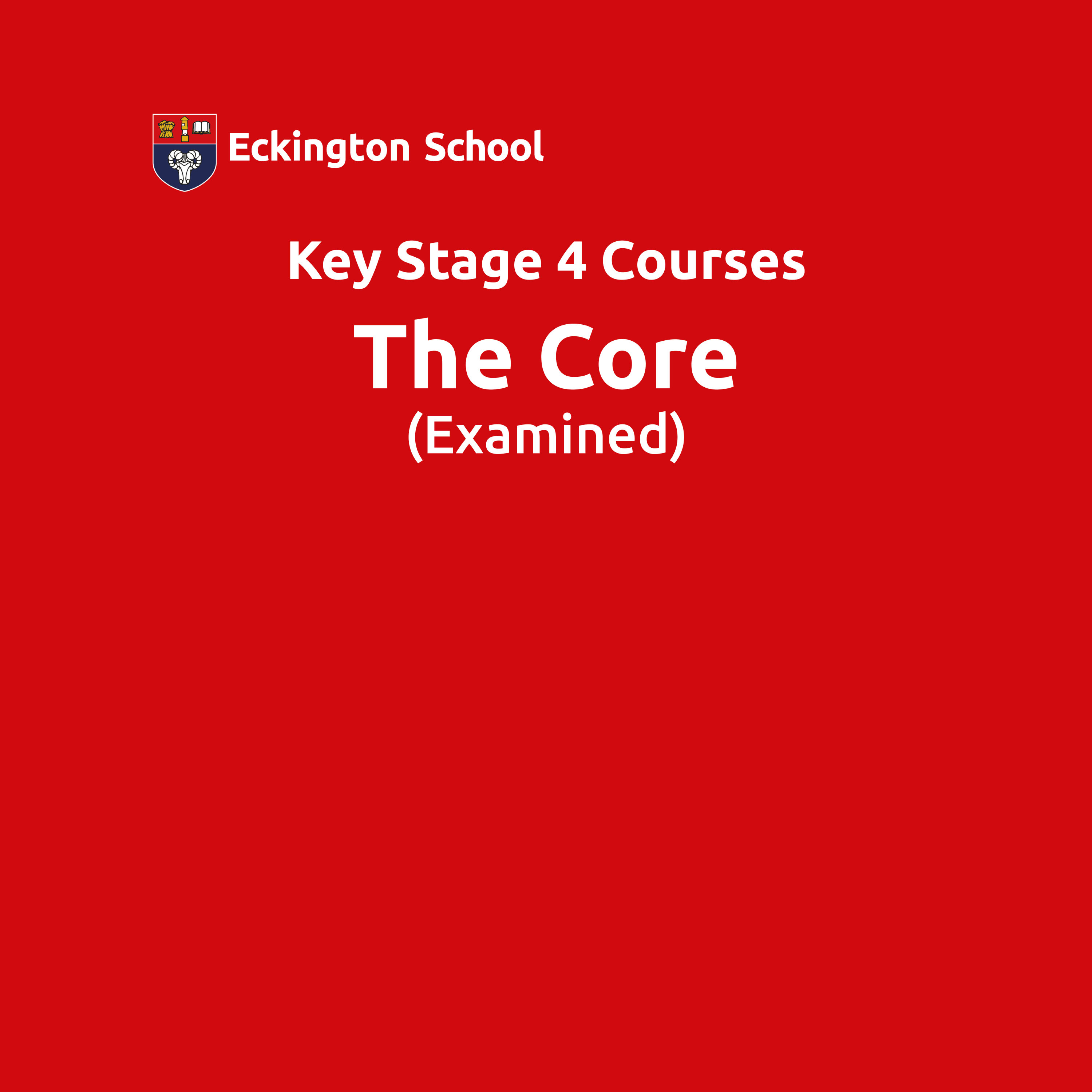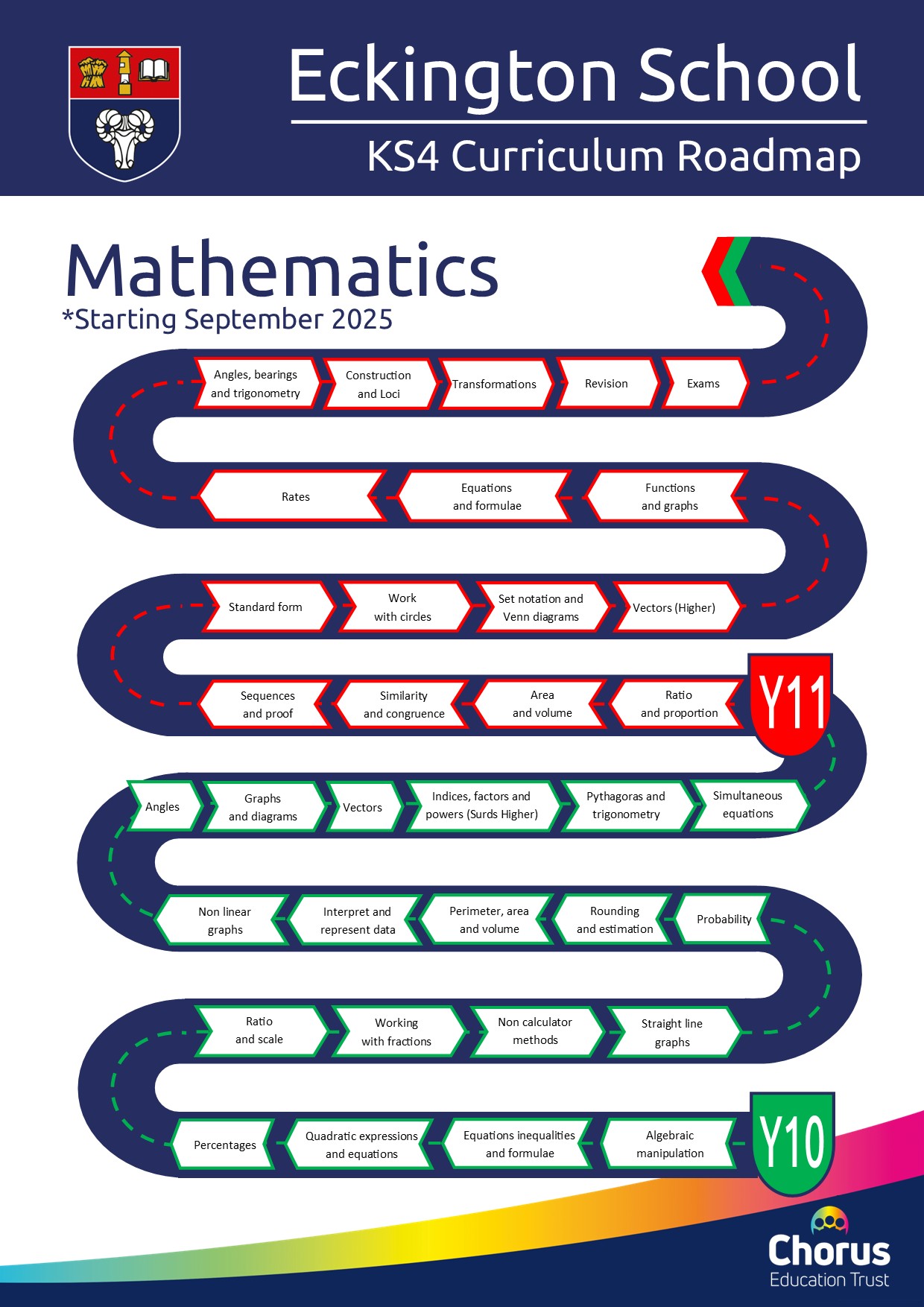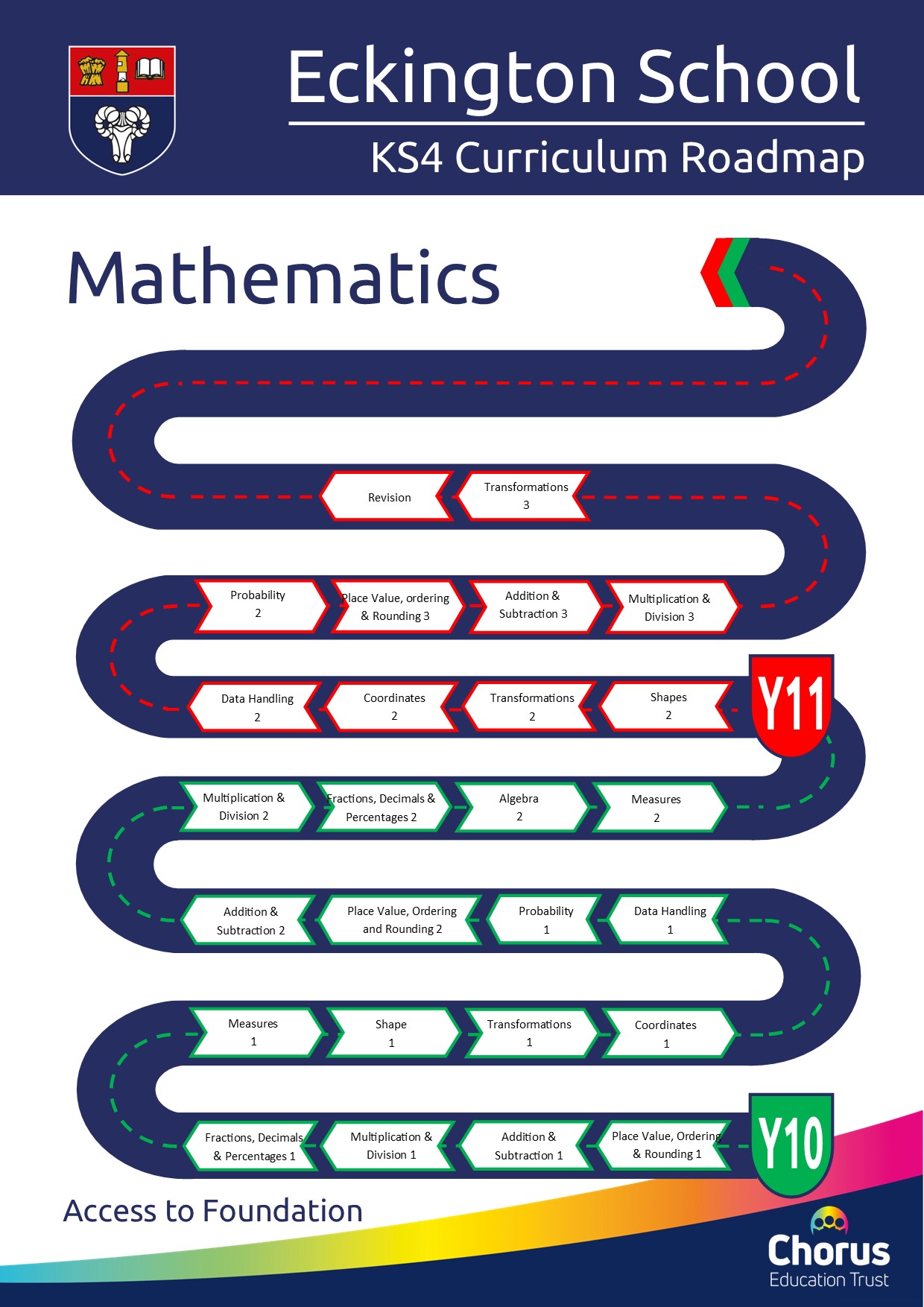Courses
We offer a broad and balanced curriculum, for:
Click the appropriate button below to find the details for each subject offered in each key stage.
Further details of our curriculum are available on the curriculum page.

Overview
Mathematics
Introduction
The GCSE mathematics course will allow students to develop their understanding of mathematics by working individually, in pairs or in groups. Many different teaching and learning styles support the learning, including discussion, thinking time and questioning for deeper understanding. Staff use interactive whiteboards with a range of programs and presentations to model work for students. In lessons, students will be pushed towards ‘extra challenge’ activities to develop perseverance, thinking and problem solving skills.
Qualification
GCSE
Awarding body
Pearson
Course leader
A Hylan
Assessment
- Examination: 100%
- Non-examined assessment: n/a
Curriculum
Curriculum roadmap
Curriculum roadmap - access to foundation
Topics
The syllabus code for the qualification is Edexcel 1MA1.
GCSE mathematics has two tiers of entry. Students sit either the higher papers (grades 4 to 9, grade 3 allowed in exceptional cases) or the foundation papers (grades 1 to 5).
The content of the papers will focus on the following areas: numbers, algebra, ratio, proportion and rates of change, geometry and measures, probability and statistics, and there is an emphasis on applying the mathematics, particularly in the higher tier.
Students will sit three terminal papers in May/June of Year 11. The first paper will be non-calculator. A calculator is used in the following two papers. Each paper is 1 hour and 30 minutes long.
Skills and requirements
Skills learned
- Mathematics is an essential life skill.
- Studying GCSE mathematics develops a student’s analytical, problem solving, research and logic skills as well as number ability and confidence; all desired by many employees.
- Students will use the skills they develop in mathematics in all other lessons and everyday life.
- Whether it is the planning of what to do at the weekend, using a computer or phone, watching the television, checking the weather, travelling, going shopping or going to the bank, mathematics plays a part.
- You may not use all the mathematics you learn. You may not use algebra when you go shopping, but the architects who designed the shop did, and the shop assistants who served you!
- Resilience is a key characteristic, developed by the study of mathematics and this is a highly desirable quality in the modern workplace.
Beyond the classroom
Future pathways
The skills developed through the study of GCSE mathematics are all desired by many employers.
Using Sparx Maths
Students have access to Sparx Maths, which they use to complete homework and revise the whole maths curriculum. Sparx Maths can be accessed via the remote login page.





